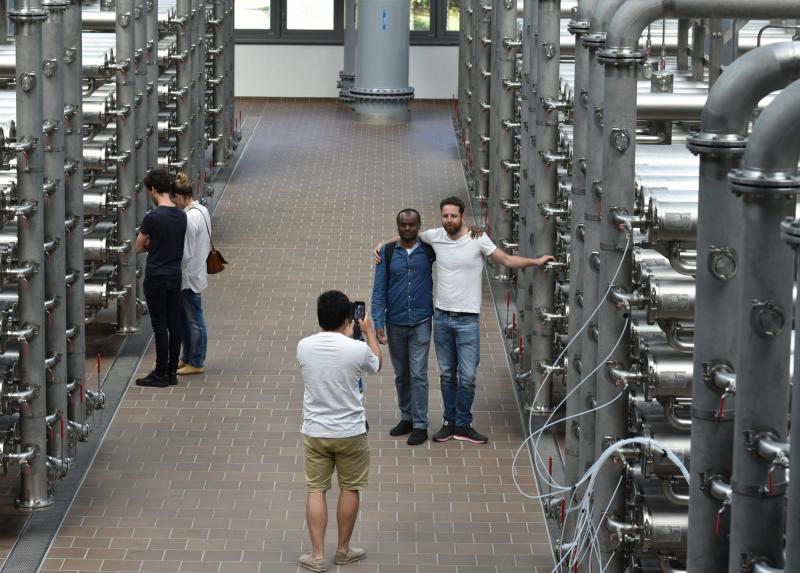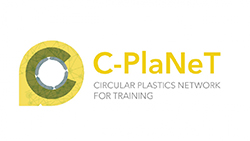Resource recovery technologies are integrated into the academic training for a wide range of students. Most of these programmes combine excellent science education with a strong focus on the development of complementary skills, e.g. entrepreneurship skills, and collaboration with the non-academic sector.
Summer school on Circular Cities (Circu City)
During the yearly 2-week Circular Cities summer school, students are trained and challenged to co-develop novel solutions for sustainable circular cities. The focus lies specifically on sustainable water and waste management, the transition to green mobility and renewable energy, and the role of raw materials in this transition. The programme is composed of 3 inter-woven training lines:
- Interactive lectures and workshops: learn from academic and industrial experts in the field
- A multi-day tournament in which students work in small groups to jointly re-design a city district, focusing on challenges in water, energy and raw materials
- In-depth thematic groups where students work on case studies and present your findings to your peers. Let’s micro-teach!
More information is given on the project website and LinkedIn page.
In the picture: IMESTE
The Msc. in Environmental Science and Technology (IMESTE) at Ghent University offers a multidisciplinary and solutions-oriented approach to the most pressing environmental issues of our times. Students learn how to create a healthier living environment for all, by preventing and remediating pollution, preserving our ecosystems, and sustainably using and reusing our planet's resources. They tackel environmental issues from local to global scale, both in developed and developing economies, from oceans to megacities, duly accounting for the driving forces of global climate change.
After a broad education in Environmental Science and Technology the first year, the programme allows students to specialize for a full year (including master dissertation research) in one of five internationally pressing environmental themes (majors), all of which are supported by top-level UGent research:
- Chemicals assessment and management
- Resource recovery technology
- Environmental health and technology for developing economies
- Urban environmental management
- Environmental health and technology for marine systems
More info can be found on the website, or listen to these testimonials of our students:
In the picture: SINReM
The International Master of Science in Sustainable and Innovative Natural Resource Management (SINReM) educates students to develop sustainable solutions across the entire raw materials value chain. From resource exploration to sustainable extraction processes and the development of more sustainable materials and recycling, students are taught to find new solutions that work towards the achievement of a circular economy.
SINReM is jointly organized by Ghent University, Uppsala University and TU Bergakademie Freiberg – three institutions known for their excellence and expertise in the field of natural resource management. These three partner universities bring together a combination of expertise that makes up the entire raw materials value chain. Close links are maintained with industry partners, delivering their insights for the development of a new type of professional that has a mission to bring more sustainability into the raw materials sector.
Ghent University contributes to SINReM through its leading expertise in the circular economy, environmental science and technology, recovery of resources from waste, and sustainability assessment. Uppsala University delivers extensive knowledge on the exploration of rare georesources. It also focuses on innovation management and entrepreneurship training. TU Bergakademie Freiberg offers its proficiency in sustainable and environmentally friendly extraction technologies.
More information about the programme is available on the website and LinkedIn.
Master programmes
- Master of Science in Bioscience Engineering: Chemistry and Bioprocess Technology (IMCHEM)
- Master of Science in Bioscience Engineering: Environmental Technology (IMMITE)
- Master of Science in Chemical Engineering (EMSHEI)
- Master of Science in Chemical Engineering Technology (EM7CHE)
- Master of Science in Materials Engineering (EMMATR)
- the International Master of Science in Sustainable and Innovative Natural Resource Management (SINReM)
- the International Master of Science in Environmental Technology and Engineering (IMETE)
- Master of Science in Environmental Sanitation (ENVISAN)
- The environmental technology programmes taught at Ghent University Global Campus in Incheon, South Korea
PhD programmes
Super-W
SuPER-W is a "European Joint Doctorate" programme for highly motivated young scientists, combining state-of-the-art research with a comprehensive joint training programme on Resource, Product and Energy Recovery from Wastewater with a strong collaboration between academic and private partners. This doctoral training programme focuses explicitly on resource efficiency and sustainability, active involvement of the non-academic sector, training in complementary skills, including entrepreneurship and translation of research into policy, international as well as cross-organisational and intersectoral mobility, dissemination, awareness raising, and public outreach, and involvement of multiple disciplines, themes, tools and techniques.

C-planet
C-PlaNeT (Circular Plastics Network for Training) is a European Joint Doctorate training project that will start in 2020. It brings together 15 international young PhD researchers working on the circular economy for plastics. C-PlaNeT takes a holistic and interdisciplinary approach and brings together chemical engineers, environmental engineers, polymer chemists, political scientists, economists, product designers and LCA-experts. The training programme focuses on specialist courses, transferable skills and dissemination and will ensure close interactions with industry and policy makers.
